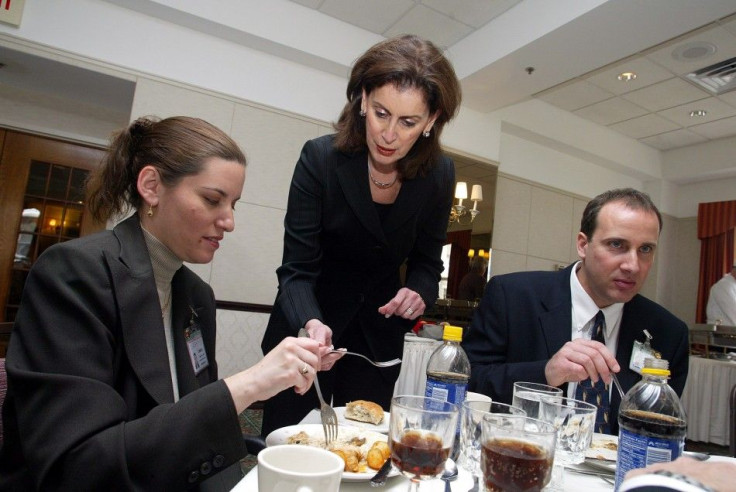The Business Traveler’s Etiquette Guide for Modern Business Dining

(Reuters) - The ways in which business gets done in today's global marketplace is evolving at a rapid rate. Even in the midst of new paradigms and emerging technologies, one thing remains constant: big deals often come together over meals.
Given that a simple faux pas at the table can make the difference between being shown the money or the door, it's time to review the Do's and Don'ts of Business Dining.
1. Be On Time.
Timeliness is among the first and most significant impressions you can make at a meal or event. If you are the host, being there first to greet your guests demonstrates a level of professionalism and consideration that will be noticed and appreciated. Similarly, if you are a guest, arriving on time makes a very positive statement about your expectations for the meal and the relationship. No matter what Hollywood or style gurus might have you believe, nothing demonstrates a lack of respect more than being fashionably late.
2. Turn Off All Devices Before Being Seated.
Whether you're the guest or the host, your dining companions should have your undivided attention during your time together. Your phone should never leave your pocket or purse during a meal, let alone see the top of the table. This is your chance to demonstrate that you value your companion enough to give 100 percent of your time and attention during the meal.
3. Follow Good Form.
Practicing good form at the dining table is a subtle but effective way to demonstrate your level of professionalism. Simple rules to consider include the following:
* Always open your napkin and place it on your lap below table level. Keep it on your lap at all times, not tucked into your collar. If you need to leave the table for a period of time, place it on the seat of your chair. At the end of the meal, place it loosely to the left of your plate.
* Use flatware (cutlery) from the outside in. Once you pick up and use a piece of silverware, it shouldn't touch the table. When you are finished with your meal, place your knife and fork on the plate so that the handles are on the lower right edge (20 after the hour on a clock) and the tips on the upper left (10:00). This allows a waiter to see you are finished and assists during the removal of the plate.
* Never borrow food from another's place setting. When you are seated, assess your setting with BMW (Bread, Meal, Water) in mind. That is, your Bread plate is always on your left, your Meal is in the middle, and your Water is always on your right. This will save you the embarrassment of inadvertently using or drinking from your companion's place setting.
4. Savor The Opportunity And The Meal.
While you may be on the clock at work during a business meal, don't let the clock dictate the pace of conversation or the speed with which you enjoy the dining experience. Instead, focus on making the most of this opportunity to connect and build your business relationship. If you are hosting, never pressure or hurry your guest in any way. They should feel like a welcomed and wanted guest.
5. Mother Knows Best.
Remember what your mother taught you. That's right! All those bits of motherly advice still apply: sit up straight, take small bites, chew with your mouth closed, never talk with your mouth full, participate in the conversation, keep your toys (i.e. your phone, purse, notebook, etc.) off the table, and for goodness' sake, be nice to your server.
While knowing how to conduct oneself at the table may seem small when negotiating an important deal or discussion, in reality, it's a valuable asset. No matter where you go in the world or how high up the ladder you climb, discerning business professionals will always recognize and respect your professionalism.
(Pamela Eyring is the president and director of The Protocol School of Washington PSOW.L, which provides professional business etiquette and international protocol training. Founded in 1988, PSOW is the only school of its kind in the U.S. to become accredited. Any opinions expressed are her own. PSOW's website is: www.psow.edu.)
© Copyright Thomson Reuters 2024. All rights reserved.






















